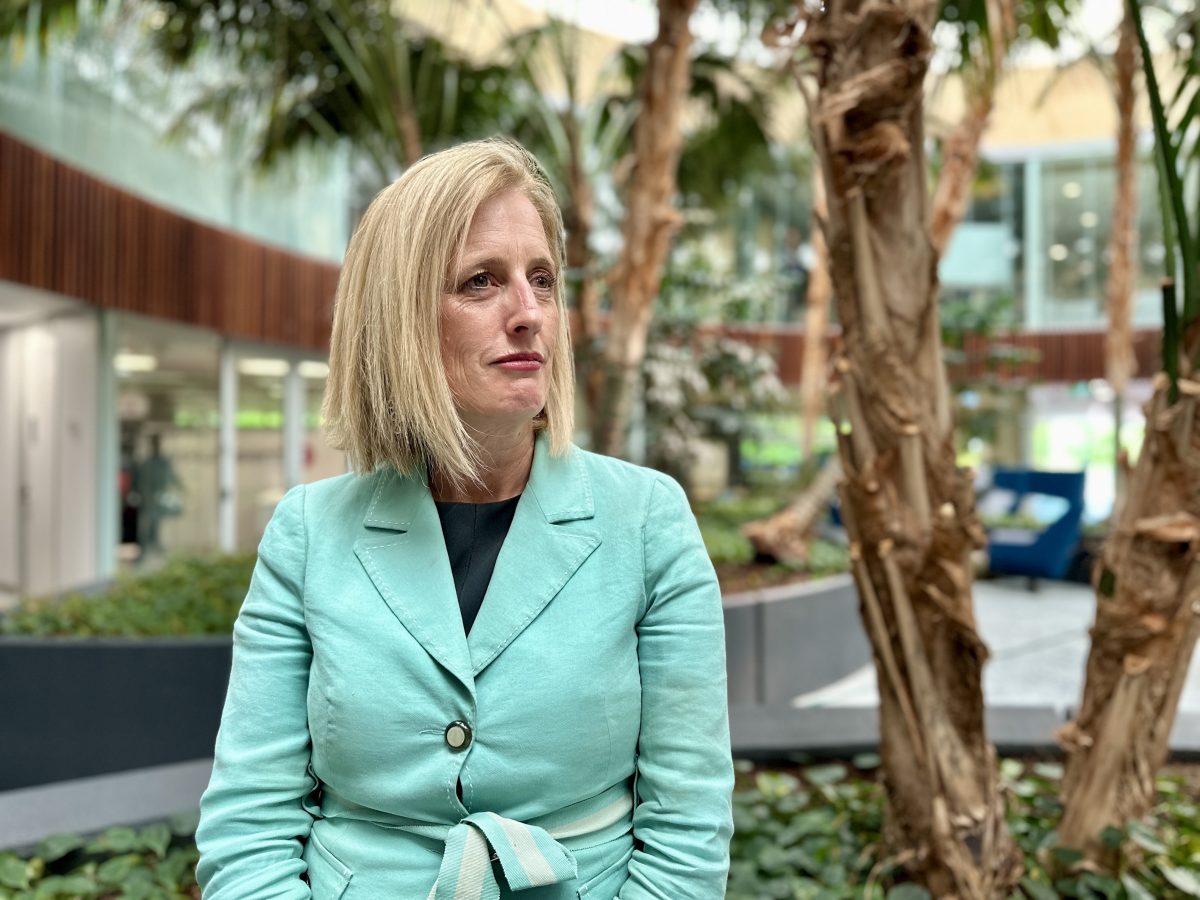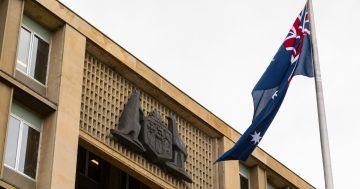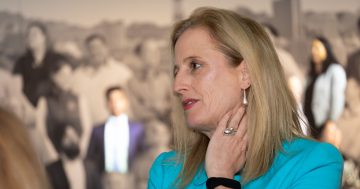
Public Service Minister Katy Gallagher wants a more culturally diverse APS. Photo: James Coleman.
Middle and senior ranks of the Australian Public Service (APS) should better reflect the diverse makeup of the wider community – and the Federal Government is on a mission to ensure it does.
It comes as the Australian Public Service Commission (APSC) faces rising concerns over racism among employees across government agencies.
In the lower ranks of APS, representation of Culturally and Linguistically Diverse (CALD) Australians is proportionate to the broader Australian population. But that representation drops significantly at the middle and senior leadership ranks.
Higher levels of discrimination and racism are also reported by CALD APS employees, with some saying they don’t always feel safe or included at work.
A survey of public servants revealed First Nations Australians as well as employees from Asian, Pacific islands and African backgrounds have felt levels of racism at work.
The APSC is treating the concern as a serious challenge for the sector.
“We have consulted across the APS and externally to understand the scale of the issue,” the APSC states on its website.
“CALD Australians bring a wealth of knowledge and experience to their work in the APS, but their ability to contribute to the Australian community is not being fully realised.
“While CALD employees want to contribute, many feel they are unable to do so because they are perceived as being inferior.
“Data and feedback indicates that the lived experience of CALD employees is significantly diminished because racism and discrimination continue to affect their working lives.
“There is a widespread sense of difficulty and distress due to systemic inequities that are not readily visible to non-CALD employees.
“It is clear that the issue is not simply about processes. Rather, the APS style of working and culture does not fully recognise the value and benefit of other cultural approaches and therefore excludes them by design.
“Colour and accent are critical factors as is intersectionality which compounds the experience for many.”
The government has now released a public consultation paper to inform the finalisation of the CALD employment strategy for the APS.
It builds on several months of work, including an APS-wide survey, interviews and listening circles, literature reviews and extensive analysis of APS data.
The APSC heard from more than 1000 APS employees at all levels, as well as from external subject matter experts.
Public Service Minister Senator Katy Gallagher said she wanted an APS workforce which reflected the full diversity of the Australian community, at all levels.
“I want the APS to be a model employer, a workplace where people from all backgrounds are valued and can progress their careers,” Senator Gallagher said.
“That is why I tasked the Australian Public Service Commission with developing this strategy, to focus on actions that can make the biggest difference for Australians from CALD backgrounds.”
Assistant Public Service Minister Patrick Gorman, who is taking carriage of the program, is urging as many people as possible to take part in the consultation.
He said the consultation process was about listening, understanding, and taking action to foster a workplace that celebrated diversity, encouraged continuous learning, and ensured safety and fairness.
“Our mission is to set the APS as an example of equity, inclusion, and diversity,” Mr Gorman said.
“Your invaluable feedback on the proposed actions will sharpen our focus and enhance our ability to achieve the goals.”
Anyone in the community can contribute their ideas and lived experiences to the conversation through the consultation paper on the APSC’s website.
The government also wants to increase the number of First Nations people in the ranks of the APS’s senior executive service (SES).
It wants the current number of 54 First Nations representatives in the SES to grow to 100 next year and fill roles in policy development, project management, strategic communications and more.
Called the SES 100 initiative, the program to achieve the target is being managed by the APSC and National Indigenous Australians Agency.
Senator Gallagher said First Nations people must be involved in the government’s policy and decision-making processes.
Numerous jobs have already been advertised and Indigenous Australians Minister Linda Burney has urged First Nations candidates to apply.
“This initiative is about boosting the number of Indigenous Australians in the senior ranks of the Australian Public Service,” Minister Burney said.
“Creating a more inclusive public sector that better reflects our country is a priority for the Albanese Government.”




















